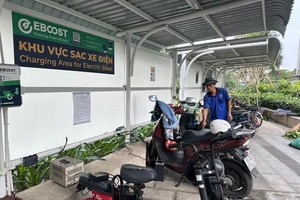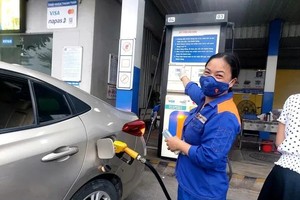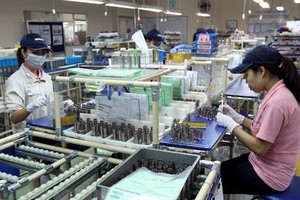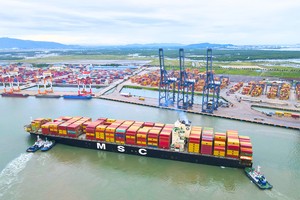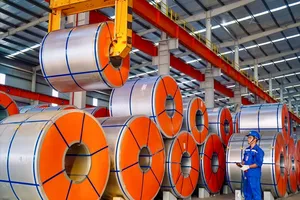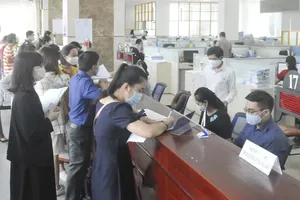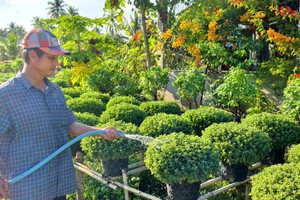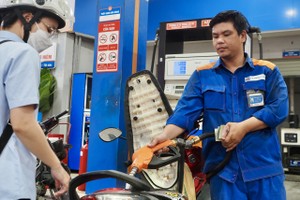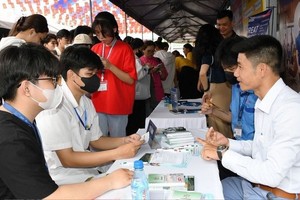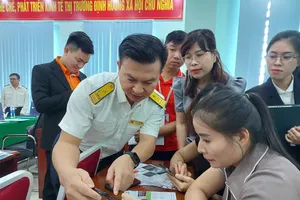The seafood industry faces many difficulties to maintain export momentum last year and obtain the turnover target of US$8-8.5 billion this year, said experts.
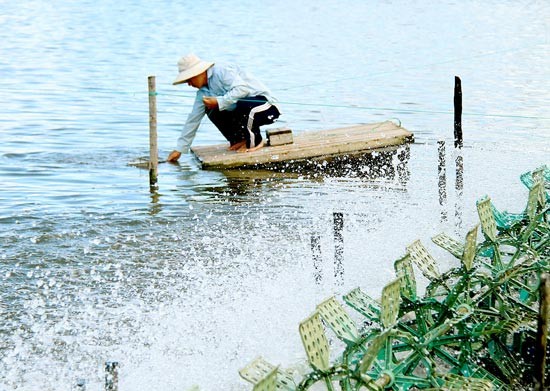
The Ministry of Agriculture and Rural Development has targeted at US$8.5 billion export turnover this year while the Vietnam Association of Seafood Exporters and Producers (Vasep) has set it at US$8 billion.
Vietnam’s seafood export turnover exceeded 2014 plan by US$1 billion to reach US$7.92 billion, much higher that in the previous year when it hit US$6.7 billion, said Dr. Nguyen Huu Dung, deputy chairman of Vasep at a meeting hosted recently.
The export achievement has taken Vietnam to the list of the five largest seafood exporters in the world.
Of the export turnover last year, shrimps accounted for 53 percent with US$4 billion in value. Despite of suffering consequences from out of control development, tra fish export turnover remained unchanged at US$1.7 billion.
Besides Vietnam imported over US$1 billion shrimp material mainly from India for local processing which has developed far beyond farming and exploiting.
According to Dr. Dung the high export turnover has not appropriately profited farmers and businesses. 2014 was a successful export year but also a hard year for them who have faced with diseases and material shortage. Shrimp breeders have worried about stunted growth.
Tra fish businesses have struggled to change their processing process to meet with new quality standards in a Government’s new tra fish decree whose implementation has been postponed a year until the end of this year.
Shrimp farming industry has yet to have a suitable farming process to prevent diseases and ensure the quality of breeding shrimp, putting both breeders and processing plants in the risk of losses due to antibiotic residue.
Deputy Chairman of My Thanh Shrimp Farming Association in Soc Trang province Vo Quang Huy said that the shrimp farming process has not been improved to help increase output and quality.
Director of Minh Phu Seafood Company from Ca Mau province Nguyen Van Quang said that because authorized agencies have not provided breeders with a suitable farming process, diseases are unavoidable.
Farmers have been forced to use antibiotic to save their sick shrimp ponds which are their entire fortune, causing risks for businesses that will be held responsible if their export consignments contain antibiotic residue higher permitted levels set by import countries, he said.
